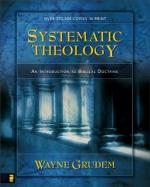|
This section contains 6,671 words (approx. 23 pages at 300 words per page) |

|
SOURCE: "Divine Causality: Newton, the Newtonians, and Hume," in Greene Centennial Studies: Essays Presented to Donald Greene in the Centennial Year of the University of Southern California, edited by Paul J. Korshin and Robert R. Allen, University Press of Virginia, 1984, pp. 40-56.
In the following essay, Popkin asserts that Newton, as well as other major scientists of the time (David Hartley and Joseph Priestley), conceived of divine causality in a manner that subordinated their views on natural causality and scientific achievement to their "millenarian religious views."
The usual picture of the development of causal theory in modern science is to portray the transformation from metaphysical to mechanistic explanations during the seventeenth century and to show that the mechanistic explanations did not account for why things happened but only constituted statements of regularities in nature. From Galileo to Hume occult qualities and necessary connections were removed from the study...
|
This section contains 6,671 words (approx. 23 pages at 300 words per page) |

|


